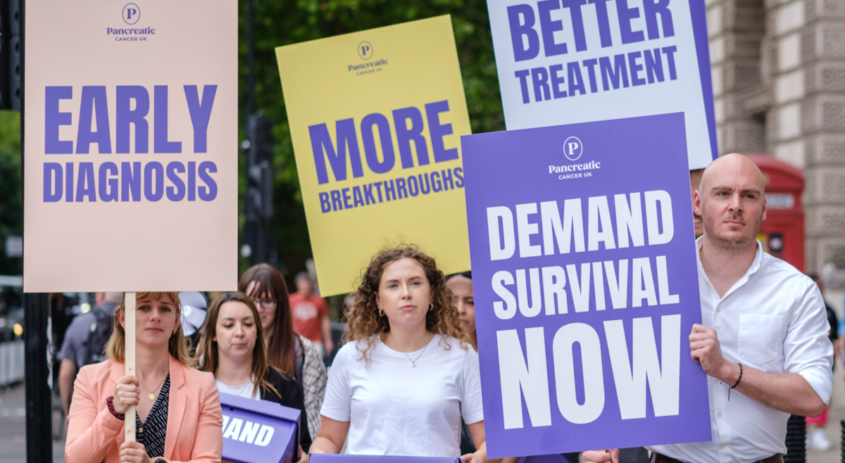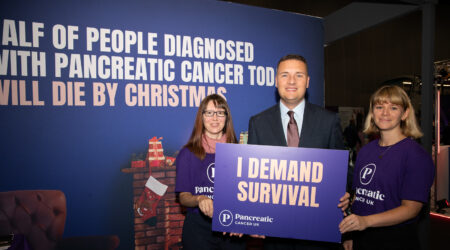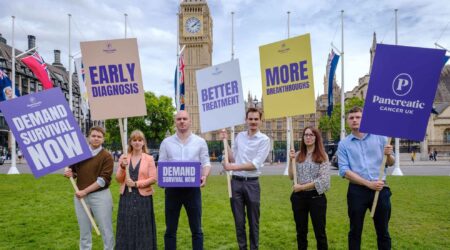Pancreatic cancer is the deadliest common cancer. But it has been ignored time after time by governments in England.
Now, the new Government is writing a 10 Year Health Plan for England. They’re inviting you to share your experiences of the NHS and tell them what needs to change.
I’ve got 5 minutes to spare
Please complete the one-question public survey. It asks for your or your family’s experiences of the NHS.
Please repeat the words “pancreatic cancer” in your response, share your experiences, and say what needs to change in diagnosis, treatment and research of pancreatic cancer.
You’ll need to register/sign in, then scroll right to the bottom of the NHS webpage to find the link saying “Share your views”.
Answer one question
I’ve got 15 minutes to spare
Please complete the full public consultation survey to have an even bigger impact.
It asks for your views on what should be included in the new 10 Year Health Plan for England, the main challenges facing the NHS and the three ‘shifts’ at the centre of the new plan.
Read our guidance below to make sure your voice counts.
Complete the full public survey
Pancreatic Cancer UK’s consultation response highlights how the system is currently failing people with pancreatic cancer and outlines the actions the government must take to finally turn the tide on this cancer. You are welcome to read this and see if there are parts that you’d like to use in your own response.
Read our response







